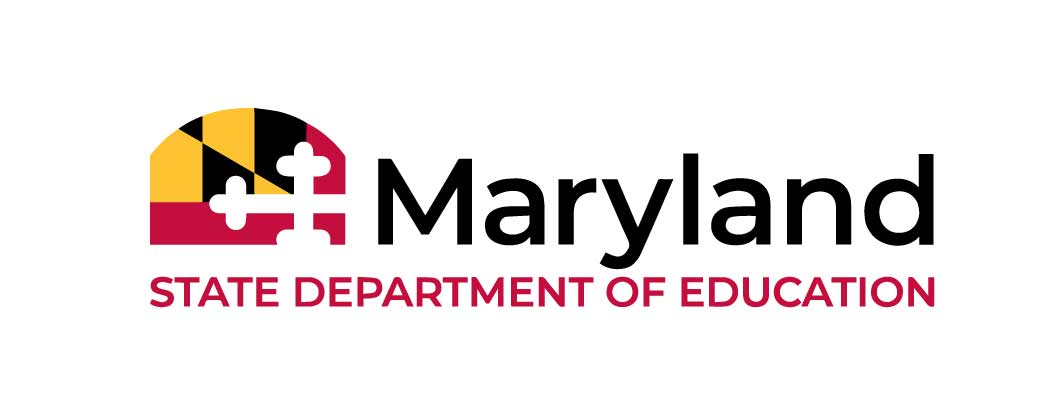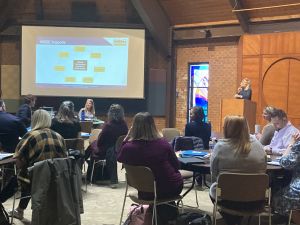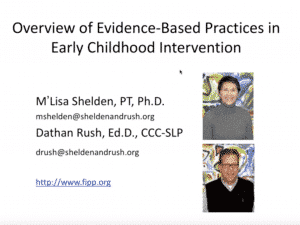Early Intervention – Eligibility

Eligibility
Who is eligible for early intervention services?
Infants and toddlers (under age 3) are eligible for early intervention services if they exhibit at least one of the following:
- A 25 percent delay, using a child’s adjusted or chronological age, as measured and verified by appropriate diagnostic instruments and procedures, in one or more of the following developmental areas:
- Cognitive development
- Physical development, including vision and hearing
- Communication development
- Social or emotional development
- Adaptive development
- Atypical development or behavior which is demonstrated by abnormal quality of performance and function in one or more of the above specified developmental areas, or interferes with current development, and is likely to results in subsequent delay
- A diagnosed physical or mental condition that has a high probability of resulting in developmental delay, with examples of these conditions including:
- Chromosomal abnormalities
- Genetic or congenital disorders
- Severe sensory impairments
- Inborn error of metabolism
- Disorders reflecting disturbance of the development of the nervous system
- Congenital infections
- Disorders secondary to exposure to toxic substances, including fetal alcohol syndrome
- Severe attachment disorders
A young child three years old until the beginning of the school year following the child’s fourth birthday, who previously received early intervention services and is identified as a child eligible for preschool special education services, may continue to receive early intervention services through an Individualized Family Service Plan (IFSP), when this option is chosen by the family.








